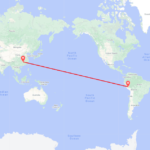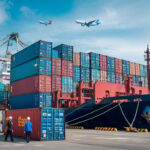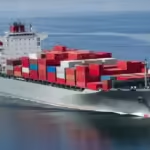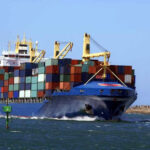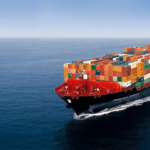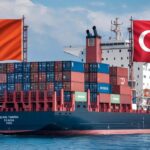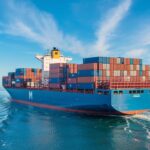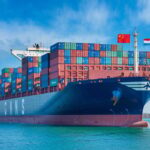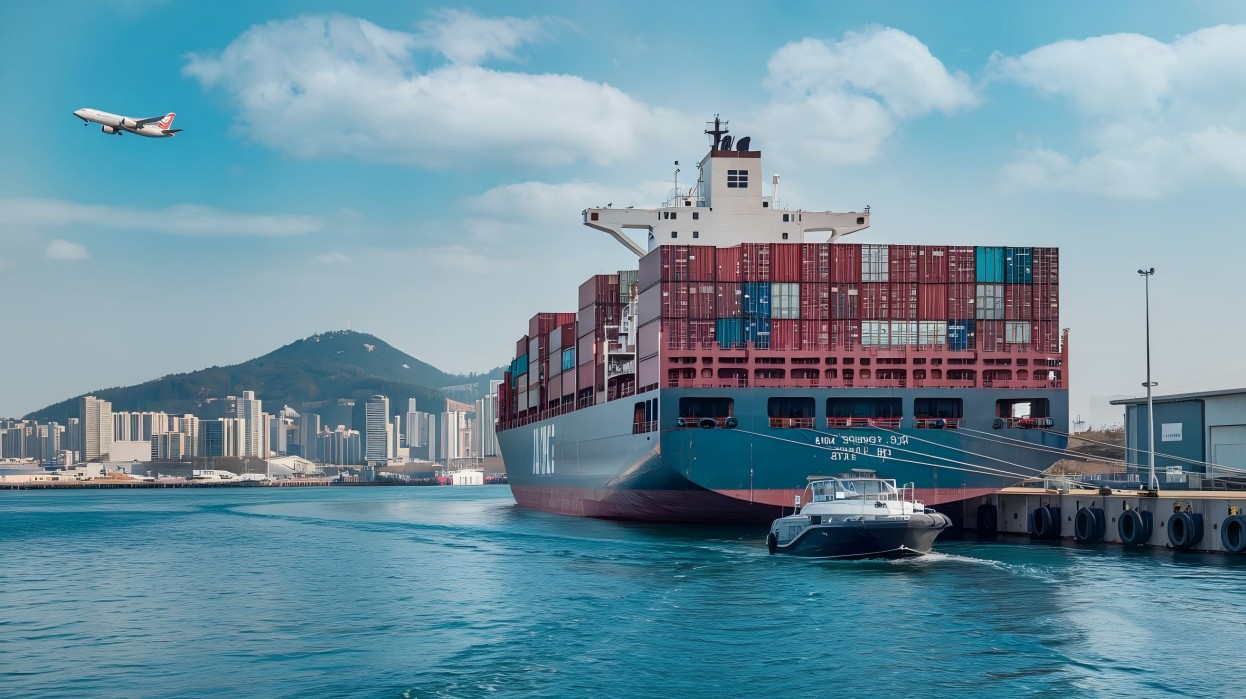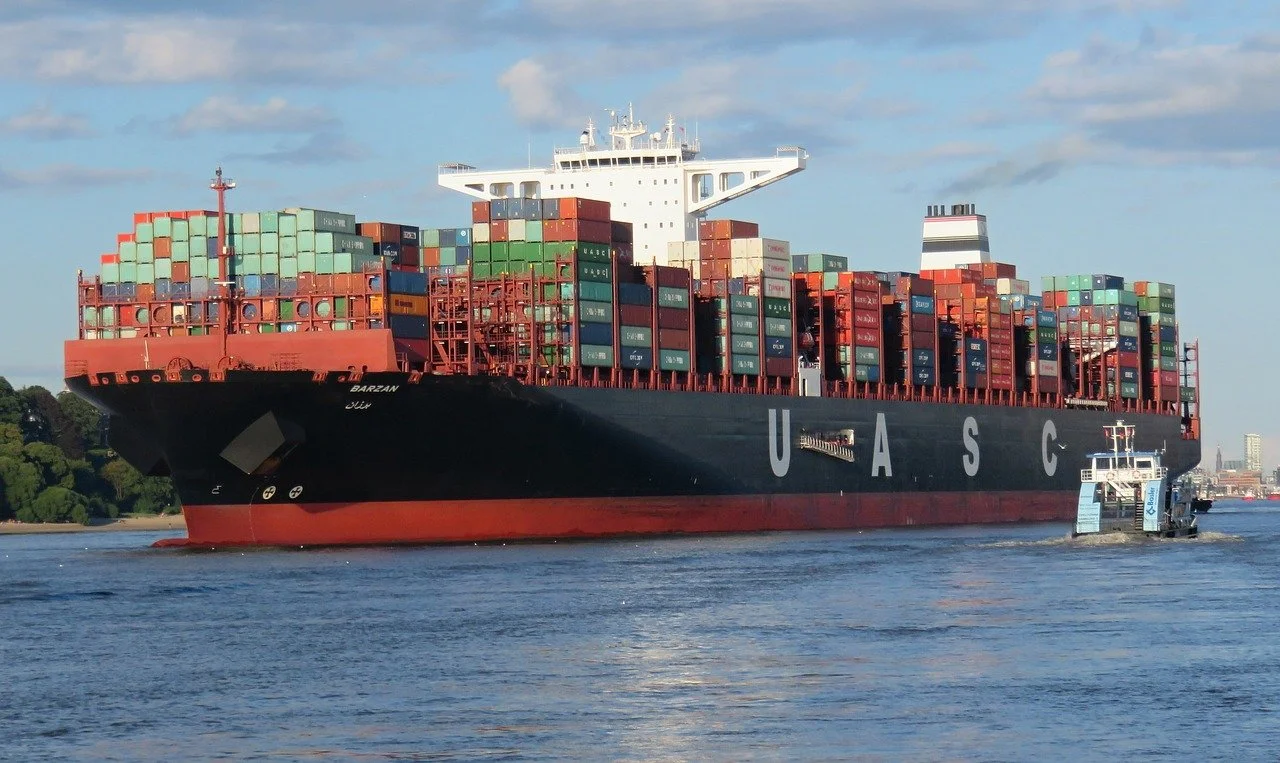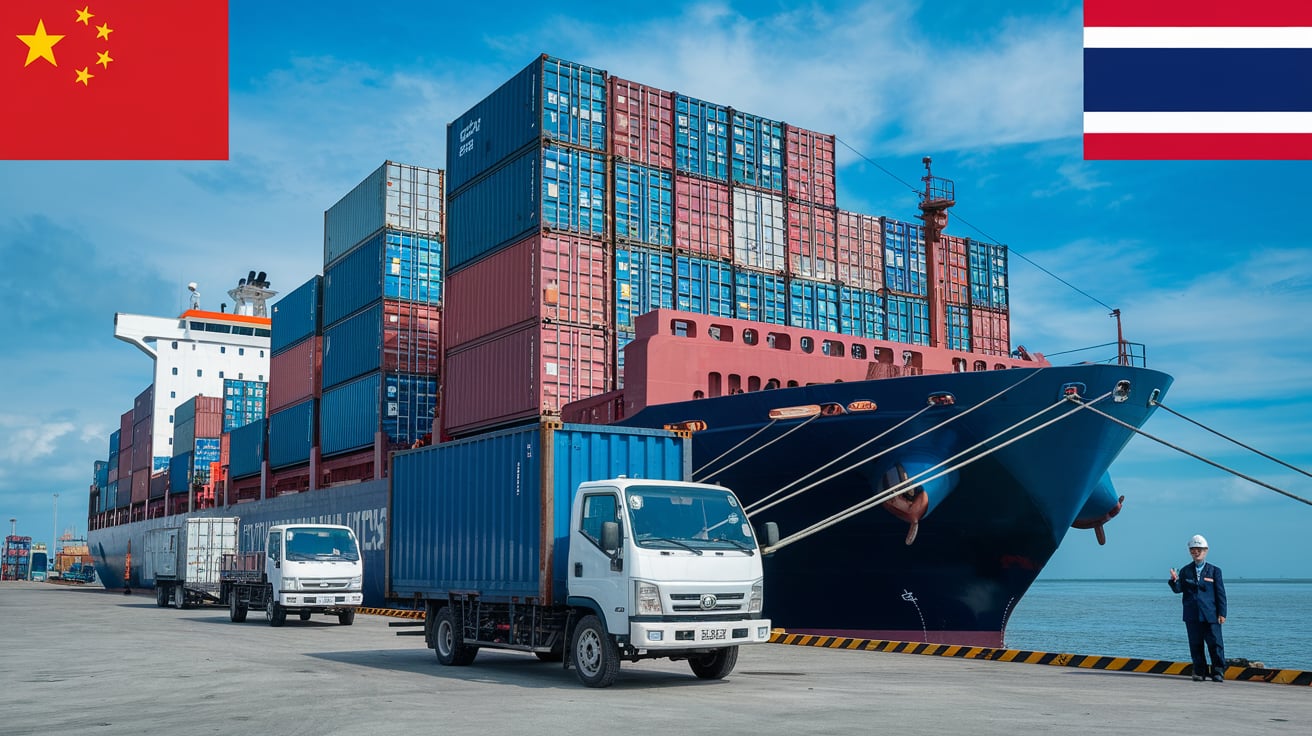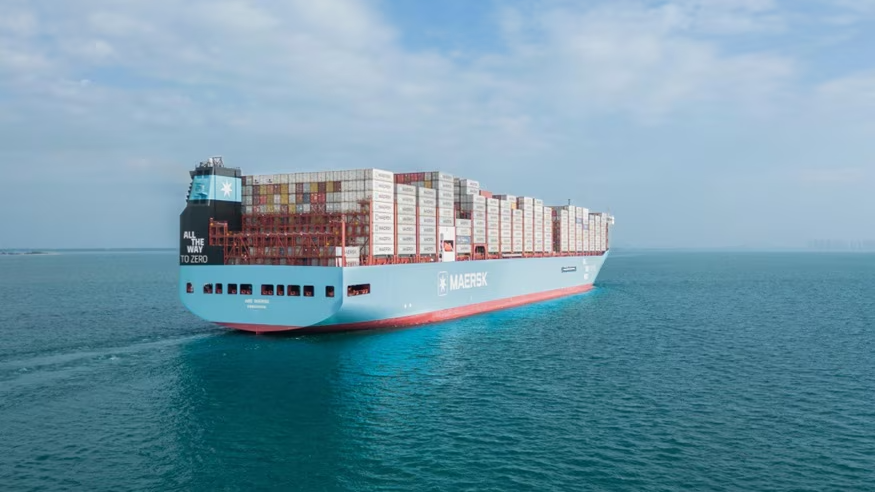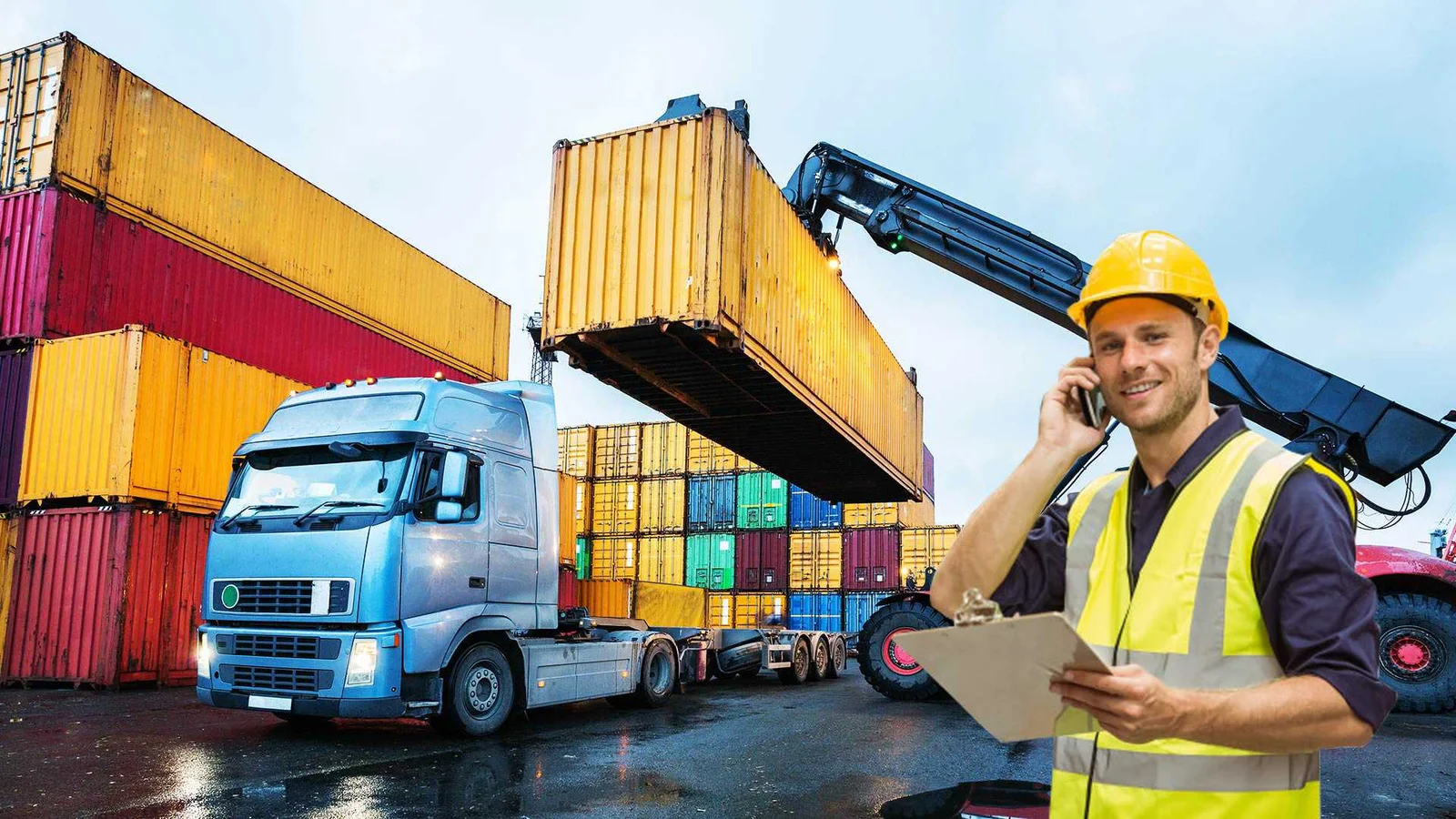Navigating the complexities of sea freight from China to Paraguay can be a daunting task for businesses aiming to optimize their logistics operations. As global trade continues to expand, understanding the advantages of sea freight—such as cost-effectiveness, capacity for large shipments, and environmental benefits—has never been more critical. This guide provides comprehensive insights into the benefits, types of services, cost factors, and transit times associated with sea freight, equipping you with the knowledge to make informed decisions for your shipping needs. Whether you are a small business or a large manufacturer, exploring the intricacies of shipping goods by sea will help streamline your logistics and enhance your supply chain efficiency.
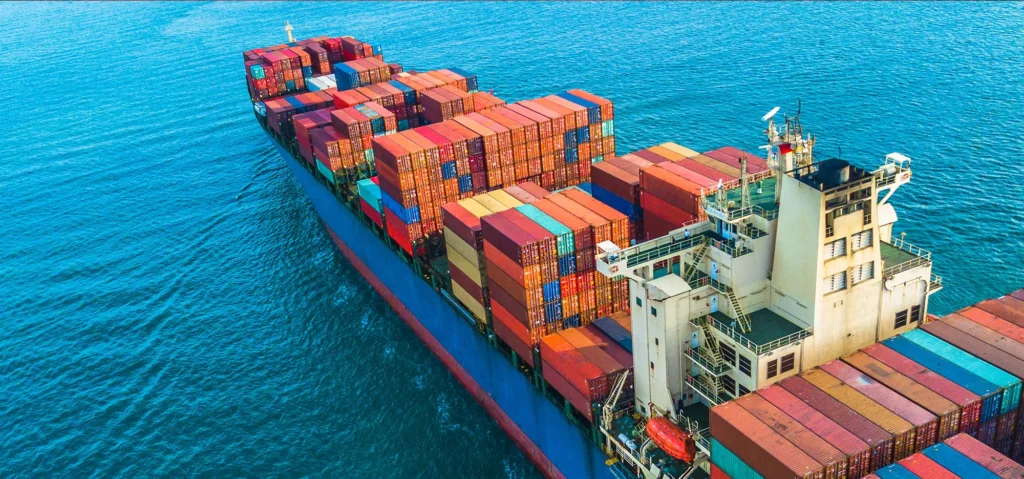
Why Choose Sea Freight for Shipping from China to Paraguay?
Cost-Effective
When considering shipping options, sea freight stands out as one of the most cost-effective methods for transporting goods from China to Paraguay. Compared to air freight, which can be significantly more expensive, sea freight offers lower rates per cubic meter or ton, particularly advantageous for bulk shipments. According to Freightos, as of 2023, the average cost of sea freight from China to South America is approximately $1,500 per 20-foot container, whereas air freight averages around $5,000 for the same volume. This cost differential makes sea freight a preferred choice for businesses looking to optimize their logistics budget.
Accommodates Large Shipments
One of the primary advantages of sea freight is its ability to accommodate large shipments. Containers typically come in standard sizes (20-foot and 40-foot), allowing businesses to ship substantial quantities of goods in one go. This is especially beneficial for manufacturers or wholesalers who need to transport large volumes of products to meet market demands. With the capacity to transport several tons of cargo, sea freight effectively supports the logistics of large-scale operations.
Versatile Container Options
Sea freight offers a variety of container types to suit different types of cargo, enhancing its versatility. These include:
- Standard Dry Containers: Commonly used for general cargo.
- Reefer Containers: Ideal for perishable goods requiring temperature control.
- Flat Rack Containers: Suitable for oversized or heavy cargo that cannot fit in standard containers.
This diversity allows businesses to select the right container type based on their specific shipping needs, ensuring the safety and integrity of their products during transit.
Reliable Transit Times
While sea freight may not be the fastest shipping option available, it provides reliable transit times that businesses can plan around. Typically, shipments from China to Paraguay take approximately 25-40 days, depending on the shipping route and port selection. With regular schedules and the ability to track shipments through various logistics platforms, businesses can effectively manage their supply chains and meet customer demands without the last-minute rush associated with expedited shipping options.
Environmentally Friendly
In an age where sustainability is becoming increasingly important, sea freight is recognized as one of the more environmentally friendly transportation methods. According to the International Maritime Organization (IMO), shipping by sea has a lower carbon footprint compared to air freight. Using efficient vessels and optimized shipping routes reduces greenhouse gas emissions, making it a preferred choice for companies prioritizing eco-friendly practices in their supply chains.
Reduced Risk of Damage
Sea freight also presents a lower risk of damage to goods during transit. Containers provide a secure environment, protecting shipments from external elements such as weather changes and impacts. Additionally, the majority of shipping companies employ stringent handling processes, minimizing the chances of loss or damage. This reliability is crucial for businesses shipping fragile or high-value items, as it enhances customer satisfaction through timely and intact delivery.
Types of Sea Freight Services
Less Than Container Load (LCL)
Less Than Container Load (LCL) services are an excellent option for smaller shipments. This service allows businesses to share container space with other consignments, which can significantly reduce transportation costs. LCL is particularly advantageous for small to medium-sized enterprises (SMEs) that do not have enough freight to fill a standard container. By utilizing LCL, businesses can enjoy:
- Cost Savings: Pay only for the space you use rather than renting an entire container.
- Flexibility: Ship smaller quantities more frequently, which can be beneficial for maintaining inventory levels.
- Simplified Logistics: LCL services often include additional support such as packing and documentation, streamlining the shipping process.
Full Container Load (FCL)
For larger shipments, Full Container Load (FCL) services are ideal as they allow businesses to exclusively use an entire container. This option is suited for companies with substantial volume, ensuring that they maximize shipping efficiency. The benefits of FCL include:
- Cost Efficiency: While the upfront cost may be higher than LCL, FCL often provides better value for larger shipments due to lower rates per ton.
- Reduced Transit Times: FCL shipments often have more direct routes, leading to quicker delivery times compared to LCL, where cargo consolidation can extend transit duration.
- Increased Security: With an exclusive container, there is less handling of goods, resulting in a lower risk of damage and theft.
Choosing the Right Service
Ultimately, selecting between LCL and FCL depends on the specific needs of the business. Companies with fluctuating inventory demands may benefit from the flexibility of LCL, while those with consistent high volumes may find FCL more advantageous in terms of cost and efficiency.
For businesses looking to streamline their shipping process, Dantful International Logistics offers tailored solutions, ensuring a highly professional, cost-effective, and high-quality international logistics service. Whether you need Air Freight, Ocean Freight, Customs Clearance, or Warehouse Services, Dantful is equipped to provide a one-stop solution for all your shipping requirements. For a seamless experience in shipping from China to Paraguay, consider partnering with Dantful today.
READ MORE:
- Shipping From China to the United States
- Shipping From China TO Canada
- Shipping From China TO Mexico
- Shipping From China to Panama
- Shipping From China to Costa Rica
- Shipping From China to Brazil
- Shipping From China TO Colombia
- Shipping From China to Jamaica
- Shipping From China to Venezuela
Factors Affecting Sea Freight Costs and Delivery Times
Shipping Ports
The choice of shipping ports plays a crucial role in determining both the cost and delivery times for sea freight. Major ports in China, such as Shanghai, Shenzhen, and Ningbo, offer extensive shipping routes and faster transit times to various ports in Paraguay, including Asunción and Port of Villeta. Below is a comparison table reflecting the major ports and their impact on transit times from China to Paraguay:
| Port of Origin | Port of Destination | Estimated Transit Time | Comments |
|---|---|---|---|
| Shanghai | Asunción | 30-35 days | Major hub with frequent sailings. |
| Shenzhen | Asunción | 28-33 days | Quick access to southern routes. |
| Ningbo | Port of Villeta | 32-37 days | Suitable for diverse cargo types. |
| Qingdao | Asunción | 32-40 days | Less frequent sailings may increase time. |
| Tianjin | Port of Villeta | 35-42 days | Strategic location for northern shipments. |
Shipment Size and Weight
The size and weight of a shipment significantly influence sea freight costs. Larger and heavier shipments typically lead to higher freight rates due to the utilization of more container space. Shipping costs are often calculated based on either the volume (measured in cubic meters) or the weight (measured in tons), whichever is greater. Consequently, it’s important for businesses to accurately assess their shipment size and weight to effectively budget for shipping costs.
Commodity Type
The type of commodity being shipped also affects both costs and delivery times. Certain goods may have restrictions or special requirements that could influence logistics.
-
Hazardous Materials: Items classified as hazardous materials require special handling and documentation, which can increase shipping costs and extend delivery times due to regulatory checks.
-
Perishable Items: Goods that are perishable often necessitate refrigeration and faster transit times to prevent spoilage. This special requirement can limit shipping options and potentially increase costs due to the need for reefer containers.
Understanding these factors is essential for businesses to optimize their shipping strategies and manage costs effectively.
Sea Freight Costs from China to Paraguay
Cost per Container
The cost of shipping containers from China to Paraguay varies based on the size of the container and the specific port pairs. The following table provides an overview of the typical rates for 20ft and 40ft containers, reflecting variations based on different port pairs:
| Container Size | Port Pair | Estimated Cost (USD) | Estimated Transit Time |
|---|---|---|---|
| 20ft | Shanghai to Asunción | $1,600 | 30-35 days |
| 20ft | Shenzhen to Asunción | $1,550 | 28-33 days |
| 20ft | Ningbo to Port of Villeta | $1,700 | 32-37 days |
| 40ft | Shanghai to Asunción | $2,800 | 30-35 days |
| 40ft | Shenzhen to Asunción | $2,700 | 28-33 days |
| 40ft | Ningbo to Port of Villeta | $2,900 | 32-37 days |
These costs can fluctuate based on market conditions, demand, and specific shipping arrangements.
Additional Fees and Charges
In addition to the base shipping costs, businesses should also consider various additional fees and charges that can impact the overall cost of sea freight. Common additional costs include:
-
Customs Duties and Taxes: Applicable tariffs imposed by the Paraguayan government on imported goods.
-
Documentation Fees: Charges for necessary paperwork, such as bills of lading and customs declarations.
-
Handling and Storage Costs: Fees associated with loading and unloading cargo at ports, as well as any potential storage fees if goods are not collected promptly.
Understanding these additional fees is vital for businesses to prepare an accurate shipping budget and avoid unexpected costs. Working with a reliable freight forwarder, such as Dantful International Logistics, can help streamline the process and provide clarity on all applicable charges, ensuring a smooth shipping experience from China to Paraguay.
Sea Freight Transit Times from China to Paraguay
Port-to-Port Delivery
Port-to-port delivery refers to the shipping process that occurs between the departure port in China and the arrival port in Paraguay. Typical transit times for major port pairs can vary significantly depending on several factors such as shipping routes, weather conditions, and the shipping line’s operational efficiency. Below is an overview of the estimated transit times for common port pairs:
| Port of Origin | Port of Destination | Typical Transit Time | Factors Affecting Delivery Times |
|---|---|---|---|
| Shanghai | Asunción | 30-35 days | Distance, shipping route efficiency, weather. |
| Shenzhen | Asunción | 28-33 days | Port congestion, vessel schedules, customs delays. |
| Ningbo | Port of Villeta | 32-37 days | Loading and unloading times, shipping line reliability. |
| Qingdao | Asunción | 32-40 days | Potential rerouting, additional transfers. |
| Tianjin | Port of Villeta | 35-42 days | Individual shipping line policies, seasonal factors. |
Several factors can affect port-to-port delivery times, including:
-
Vessel Schedules: The frequency and reliability of scheduled services play a significant role in transit times. Delays in cargo loading or unloading can impact overall delivery.
-
Weather Conditions: Inclement weather may lead to delays in departures and arrivals, particularly during storm seasons.
-
Port Congestion: Busy ports may experience delays due to congestion, impacting the overall efficiency of port operations.
Door-to-Door Delivery
Door-to-door delivery extends beyond the port-to-port service and includes the final delivery of goods to the recipient’s address. This service is vital for businesses requiring a seamless logistics experience. Efficient customs clearance is a fundamental aspect of successful door-to-door delivery. Delays in customs can lead to significant interruptions in the supply chain.
Factors that impact door-to-door delivery include:
-
Importance of Efficient Customs Clearance: Effective customs clearance can expedite the process of moving goods through customs. This includes having accurate documentation, understanding tariffs, and complying with local regulations. Businesses partnering with experienced freight forwarders can navigate these complexities more effectively.
-
Impact of Last-Mile Delivery: The last-mile delivery process involves transporting goods from the nearest distribution center to the final destination. Factors influencing last-mile delivery include local traffic conditions, route optimization, and the availability of a reliable delivery service. Efficient last-mile delivery is essential in ensuring that shipments reach customers on time and in good condition.
Choosing a Reliable Freight Forwarder
Selecting a reputable freight forwarder is critical for successful shipping operations, especially when importing goods from China to Paraguay. The following factors should be considered when choosing a freight forwarding partner:
Experience in China-Paraguay Trade
A freight forwarder with extensive experience in the China-Paraguay trade can provide valuable insights and best practices. They should be knowledgeable about the specific regulations, customs processes, and logistics challenges associated with this trade route. An experienced freight forwarder can help mitigate risks, streamline operations, and ensure compliance with relevant laws.
Service Quality and Customer Support
Service quality is paramount when dealing with logistics and freight forwarding. A reliable freight forwarder should offer a range of services tailored to meet the needs of businesses. This includes:
-
Timely Communication: Clear and prompt communication regarding shipment status, potential delays, and any issues that may arise.
-
Personalized Support: Dedicated customer support representatives who understand the specific needs of the business and are responsive to inquiries.
-
Transparent Pricing: A reputable freight forwarder should provide clear pricing structures, including all potential fees, enabling businesses to budget effectively.
Customs Clearance Expertise
Customs clearance expertise is crucial for ensuring that shipments move smoothly through border controls. A freight forwarder with a strong understanding of customs regulations can:
-
Prepare Accurate Documentation: Ensure that all necessary documents, such as commercial invoices, packing lists, and certificates of origin, are correctly prepared and submitted.
-
Navigate Tariffs and Duties: Provide insights into applicable tariffs and duties, helping businesses to budget for additional costs and avoid unexpected expenses.
-
Resolve Issues Promptly: Address any customs-related challenges swiftly to minimize delays and disruptions in the supply chain.
Partnering with a knowledgeable and reliable freight forwarder like Dantful International Logistics can significantly enhance the shipping experience from China to Paraguay. With comprehensive services, including customs clearance and door-to-door shipping, Dantful is committed to providing a seamless logistics solution tailored to the needs of global traders.

Young Chiu is a seasoned logistics expert with over 15 years of experience in international freight forwarding and supply chain management. As CEO of Dantful International Logistics, Young is dedicated to providing valuable insights and practical advice to businesses navigating the complexities of global shipping.

